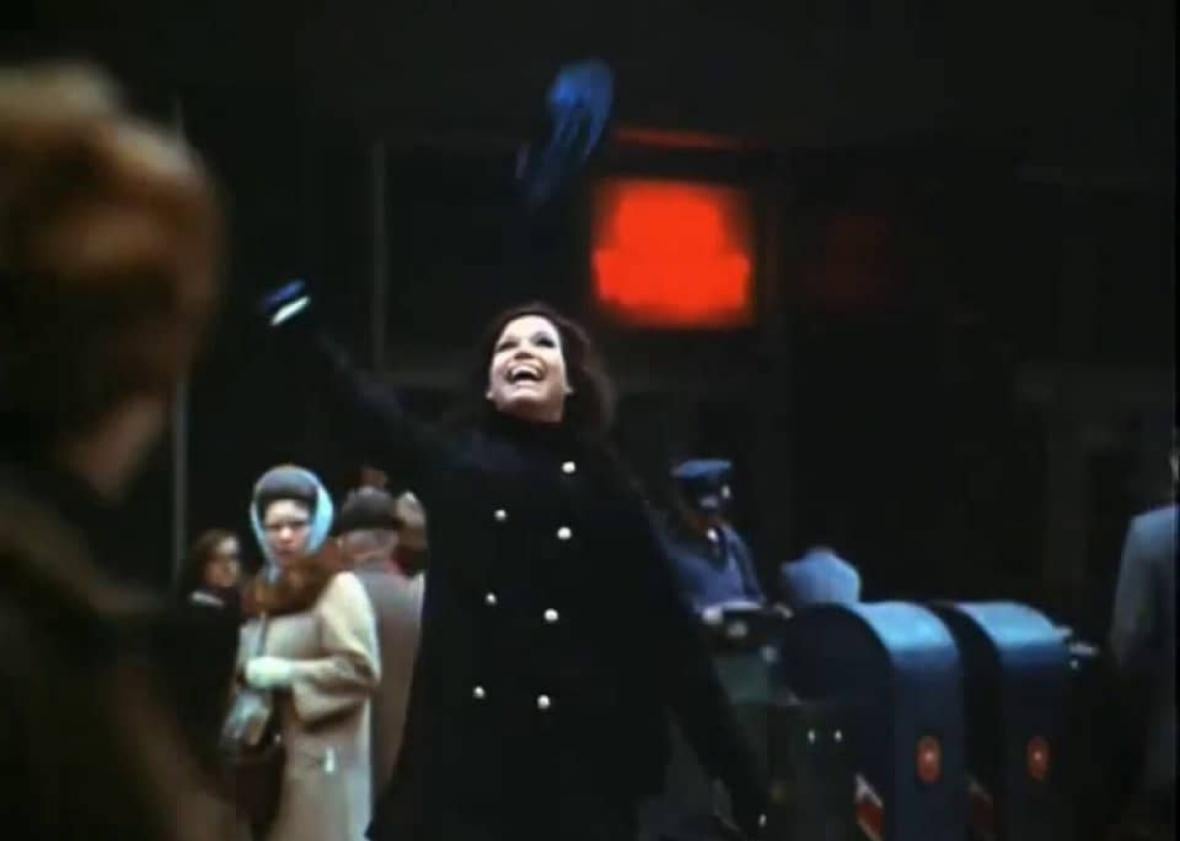“How will you make it on your own?” wonders Sonny Curtis, the writer and performer of The Mary Tyler Moore Show theme, in the original version of the song. These lyrics, which were scrapped after the first season of the now-classic sitcom and replaced by the infinitely superior “Who can turn the world on with her smile?” version, stress Mary Richards’ singleness, alluding to a past relationship gone bad and the possibility of new love, before concluding with the distinctly underminer-y “You might just make it after all.”
I have no memory of that early version of the song, probably because I was only 4 the year it aired—though I suspect I would already have been watching The Mary Tyler Moore Show. My family watched it ritually every Saturday night, in a legendary CBS programming block that for many years also included All in the Family and The Bob Newhart Show, and in 1973 also included M*A*S*H. (All in the Family and M*A*S*H were sometimes skippable, if we were still finishing dinner or the dishes; the goal was to get done in time to watch Mary and Bob back to back.)
For me, The Mary Tyler Moore show was like a glimpse of what the best of adulthood might be like: to live in your own apartment with a big wooden initial on the wall, with your best friend right upstairs; to have a job in a real office, wear glamorous but practical outfits (I mean, come on) and do interesting work with funny, warm, sometimes crabby but ultimately lovable people. Who could want more than that? It never occurred to me that Mary Richards was lacking a man or living through any sort of temporary phase. Even though her crises of self-confidence, professional, romantic, or otherwise, made for the plot of many an episode, Mary’s self-sufficiency was to me axiomatic and central to what made her represent, to my under-10 self, pretty much the pinnacle of what could be expected from life.
Just last night, while putting my own 10-year-old child to bed—that sounds lovely and maternal, but in truth the task mainly consists of prodding her to brush her teeth faster—I was singing the theme song to The Mary Tyler Moore Show—the real version, the one whose lyrics (also by Curtis) stop condescending to Mary Richards and start encouraging her: “Who can take a nothing day/ And suddenly make it all seem worthwhile?/ Well it’s you girl, and you should know it … You’re gonna make it after all.” (I had just read the headlines that Moore was in the hospital, and she was in my thoughts. Plus, it’s an extremely catchy song.) When I heard that she had died at the age of 80, I sang it some more and played several cover versions, including the great one by Husker Du. It was in the process of this grief-related research that I learned about the discarded early version of the theme and started to think about how what I now recognize as the show’s feminism must have impressed me as a child.
When Mary Richards first came to the small screen in 1970, that shift in tone, from “How will you make it on your own?” to “You’re gonna make it after all,” must have been an important one for working women watching the show. But luckily for my still-forming brain, it was only the second version—with its affirmation of adult female independence and professional success as a state not of scarcity and loneliness but of abundance and joy—that remained. For that, on behalf of all the little girls who grew up watching Mary Richards, I give thanks to Mary Tyler Moore.
